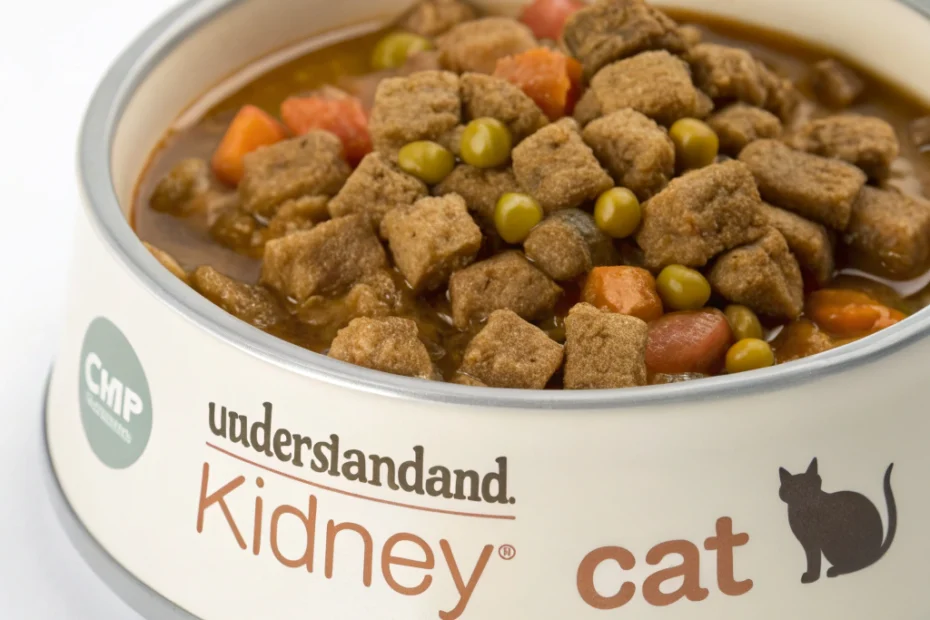At-a-Glance
Cat kidney support food is specially formulated to help manage the health of cats with kidney issues. These foods may help support kidney function by providing balanced nutrition that is easier on the kidneys. They often feature reduced protein and phosphorus levels, which can be beneficial for cats with compromised kidney function. Understanding the role of these foods and how they fit into your cat’s diet is crucial for maintaining their overall health and well-being.
How to Choose
When selecting cat kidney support food, it’s important to consider several factors. First, consult your veterinarian to determine if your cat would benefit from a specialized diet. Look for foods that are specifically labeled for kidney support, as these are formulated to meet the unique nutritional needs of cats with kidney issues. Ingredients should include high-quality proteins and reduced levels of phosphorus and sodium. Additionally, consider the taste and texture preferences of your cat to ensure they will eat the food willingly.
Safety & Setup
Introducing a new diet to your cat should be done gradually to avoid digestive upset. Start by mixing a small amount of the new food with your cat’s current diet, gradually increasing the proportion over a week or two. Monitor your cat for any adverse reactions, such as vomiting or diarrhea, and consult your veterinarian if you notice any concerning symptoms. Ensure that fresh water is always available, as hydration is crucial for cats with kidney issues.
Core Pillars
The core pillars of cat kidney support food include reduced protein levels, controlled phosphorus, and sodium content, and enhanced palatability. Reduced protein helps minimize the workload on the kidneys, while controlled phosphorus and sodium levels can help manage blood pressure and slow the progression of kidney disease. Enhanced palatability ensures that your cat will eat the food, which is essential for maintaining their nutritional intake.
Placement & Environment Tips
Place your cat’s food and water bowls in a quiet, comfortable area where they feel safe. This encourages them to eat and drink regularly. Ensure that the feeding area is clean and free from distractions. If you have multiple cats, consider feeding them separately to prevent competition and ensure that your cat with kidney issues receives the appropriate diet.
Comparison with Alternatives
Cat kidney support food is specifically formulated for cats with kidney issues, unlike regular cat food, which may not meet the specific nutritional needs of these cats. While homemade diets can be an alternative, they require careful planning and veterinary guidance to ensure they provide the necessary nutrients. Prescription diets, available through veterinarians, are another option and are tailored to address specific health concerns, including kidney disease.
FAQs
What are the signs that my cat might need kidney support food?
Common signs include increased thirst and urination, weight loss, decreased appetite, and lethargy. If you notice these symptoms, consult your veterinarian for a proper diagnosis.
Can I feed my healthy cat kidney support food?
It’s generally not recommended to feed kidney support food to healthy cats, as it is specifically formulated for those with kidney issues. Always consult your veterinarian before making dietary changes.
How long will my cat need to be on kidney support food?
This depends on your cat’s specific health needs and your veterinarian’s recommendations. Some cats may need to stay on a kidney support diet for life, while others may only need it temporarily.
What to Do Next
If you suspect your cat may benefit from kidney support food, the first step is to consult your veterinarian. They can provide a diagnosis and recommend the best dietary options for your cat’s specific needs. Once you have a plan, introduce the new food gradually and monitor your cat’s response. Regular check-ups with your veterinarian will help ensure that your cat’s dietary needs are being met and that their health is being effectively managed.
Disclaimer: Always consult your veterinarian for personalized advice regarding your cat’s health.
